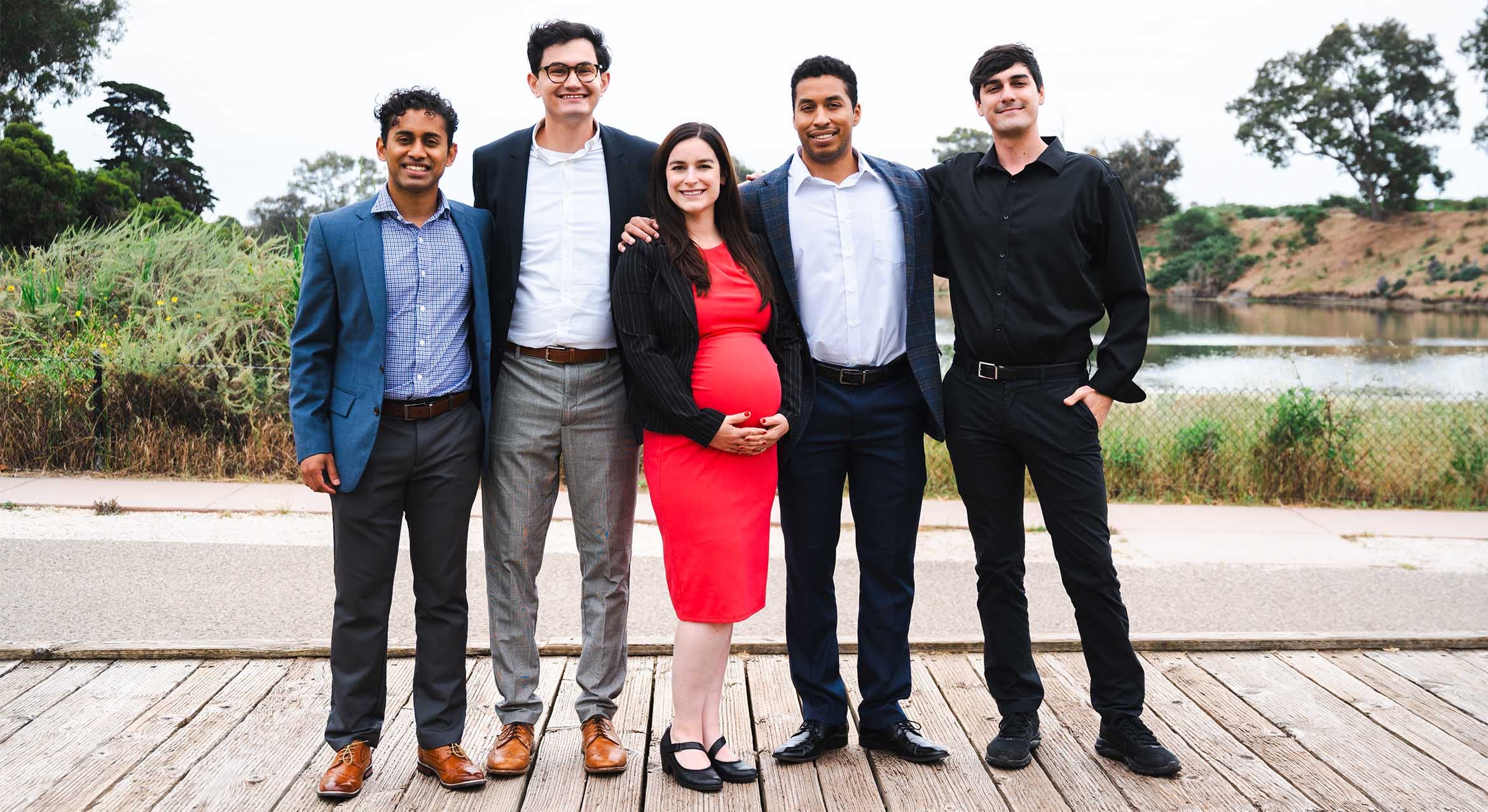The prestigious High Energy and Particle Physics Prize of the European Physical Society for 2003 has been awarded to David Gross, a professor of physics and director of the Kavli Institute for Theoretical Physics at the University of California, Santa Barbara.
He shares the prize with two other Americans---Frank Wilczek of the Massachusetts Institute of Technology, who was a student of Gross's at Princeton University and, in the 1980s, served on the UCSB faculty; and David Politzer of the California Institute of Technology. They are the first Americans to ever receive the award.
The award recognizes the fundamental contributions the three scientists have made to quantum chromodynamics, the theory of strong interactions.
The prize is awarded every two years. It includes a medal, a diploma, and a cash award.
Gross traveled to Aachen, Germany to accept the award at a ceremony held this week, during the International Europhysics Conference on High Energy Physics.
The European Physical Society (EPS) is a scientific society whose purpose is to promote physics and physicists in Europe. Created in 1968, the EPS provides an international forum to discuss science and policy issues of interest to its members. It represents over 80,000 members and physicists through its 38 national member societies.
David Gross was a central figure in theoretical developments surrounding the emergence of quantum chromodynamics (QCD) as the accepted theory of the strong (nuclear) force. His discovery, with Wilczek, of asymptotic freedom led the two to formulate QCD. Asymptotic freedom is a phenomenon where the nuclear force weakens at short distances, which explains why experiments at very high energy can be understood as if nuclear particles are made of noninteracting quarks.
The flip side of asymptotic freedom is that the force between quarks grows stronger as one tries to separate them. This is the reason why the nucleus of an atom can never be broken into its quark constituents.
Gross took a seminal role in the explosive development of string theory in the 1980s, making major contributions to the theory of superstrings, which brought gravity into the quantum framework. With collaborators, he originated the "Heterotic String Theory," the prime candidate for a unified theory of all the forces of nature.
"The High Energy and Particle Physics Prize is a major international award, and my UCSB colleagues and I are extremely pleased and proud that Professor Gross has been recognized with this very important honor," said UCSB Chancellor Henry T. Yang. "That no American has previously won this award only adds to the pride we take in this accomplishment. David's pioneering research over many yearsóin quantum chromodynamics, string theory, and other areasóhas pushed the boundaries of science and increased our understanding of some of the basic forces of nature. We are fortunate to have him as our colleague and we are grateful for his superb leadership of our world-renowned Kavli Institute for Theoretical Physics."
Gross, a native of Washington, D.C., took his undergraduate degree at the Hebrew University in Jerusalem in 1962, and his Ph.D. at Berkeley in 1966. He spent three years as a junior fellow at Harvard before moving to Princeton, where he was promoted to full professor in 1973 and named Eugene Higgins Professor of Physics in 1986. In 1997, Gross moved to Santa Barbara to assume directorship of the Institute for Theoretical Physics at UCSB, now known as the Kavli Institute for Theoretical Physics. He now holds the Frederick W. Gluck Chair in Theoretical Physics as director of the institute.
Among his many honors, Gross is a member of the National Academy of Sciences, the American Academy of Arts and Sciences, a recipient of the Sakurai Prize, the Dirac medal, a MacArthur Foundation Prize fellowship, and, in 2000, the Harvey Prize in science and technology. The Harvey Prize is awarded by the Technion – Israel Institute of Technology to recognize scholars whose breakthrough achievements in science and technology have served as a source of inspiration to others. Gross also was awarded an honorary doctorate by the University of Montpellier, France.
Related Links
Kavli Institute for Theoretical Physics
David Gross's Home Page



